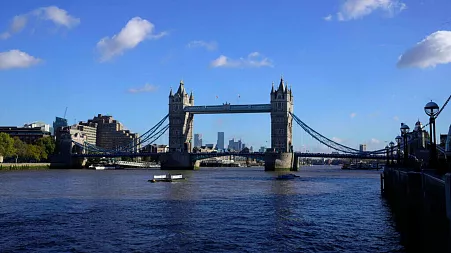Your support helps us to tell the story
Support NowThis election is still a dead heat, according to most polls. In a fight with such wafer-thin margins, we need reporters on the ground talking to the people Trump and Harris are courting. Your support allows us to keep sending journalists to the story.
The Independent is trusted by 27 million Americans from across the entire political spectrum every month. Unlike many other quality news outlets, we choose not to lock you out of our reporting and analysis with paywalls. But quality journalism must still be paid for.
Help us keep bring these critical stories to light. Your support makes all the difference.
Retirees are rushing to withdraw cash from their pensions ahead of feared cuts to tax-free benefits in the Budget, the boss of one of Britain’s top investment platforms has said.
Savers can typically take 25 per cent of their pension as a lump sum, up to a limit of £268,275, allowing them to avoid paying income tax, but Chancellor Rachel Reeves is reportedly considering a cut to the amount savers can withdraw without triggering a payment to HM Revenue & Customs.
It comes as she faces tough choices over how to close a “black hole” of £22bn to balance the government’s books. Critics have suggested that tweaks to the Treasury’s rules on capital spending could ease much of the pain, but Ms Reeves has set herself strict rules, including a pledge to cut debt as a share of the economy.
The chancellor told ministers in a cabinet meeting this week that plans to fill the gap in the UK’s finances will be enough only to “keep public services standing still”.
Her approach has been attacked by Tory politicians who say she is using her pledges as a stick to beat the wealthy, while Labour ministers have reportedly written to Sir Keir Starmer asking for spending cuts to be softened.
Pension provider AJ Bell chief executive Michael Summersgill said: “Pensions are the primary retirement savings vehicle in the UK and customers are unsurprisingly sensitive to changes in their tax treatment.
“Amidst increased press coverage ahead of the upcoming Budget, we have seen a noticeable change in both customer contributions to pensions and tax-free cash withdrawals.
“We have therefore made representations to the Treasury calling for a commitment to a pension tax lock in the Budget, guaranteeing stability in key pension tax legislation for at least this parliament.”
Rival platform Bestinvest reported this week that withdrawal requests ahead of the Budget doubled last month compared to a year ago. Contributions from savers into self-invested pension pots rose tenfold.
A shake-up of the UK’s generous pension tax allowances has been feared for several years as chancellors search for ways to raise money without further indebting the country or raising income tax.
The allowances are designed to encourage workers to save more in order to top up the state pension, which at £11,502.40 is one of the stingiest in western Europe.
But these rules are most beneficial to high earners seeking to ease the burden of 40 percent and 45 per cent tax bands. These bands start for those taking home more than £50,271 a year.
As well as tax allowances on withdrawing pension savings, there are also tax breaks for savers still building their pension pots.
These savers, in contrast, are adding more cash, gambling that the treasury may cut their generous tax-free saving allowances which are most attractive for higher-rate tax payers, who can recoup the 40 per cent they pay on their incomes.
Think tanks including the influential Institute for Fiscal Studies and the left-leaning Fabian Society have suggested that the tax-free lump sum allowance for pensioners should be cut to £100,000, since such a shift would only have an effect on the wealthiest.
The current allowance benefits those with pension pots of about £1m most, a group who arguably need little extra help, the IFS suggested.
If AJ Bell’s results are a guide, the shift in behaviour from pensioners and savers has not led to a wholesale withdrawal of funds. The provider said the amount of money it oversees surged by more than a fifth in the year to the end of September, to £86.5bn.
Ms Reeves is also reportedly considering an overhaul to capital gains tax, where tax is paid on assets which have appreciated in value, from shares in companies to second homes.
Disclaimer: The copyright of this article belongs to the original author. Reposting this article is solely for the purpose of information dissemination and does not constitute any investment advice. If there is any infringement, please contact us immediately. We will make corrections or deletions as necessary. Thank you.



